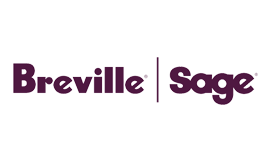
Customer
Breville
Products and Services
- Azure Data Lake
- Dynamics 365
- Dynamics 365 Commerce
- Dynamics 365 Finance
- Dynamics 365 Supply Chain Management
- Power Apps
- Power BI
Industry
Retailers
Organization Size
20 peoples
Country
Australia
Read The Story
"The headroom that we have with the Dynamics 365 platform is enabling a shift in growth."
Stuart Hamilton: General Manager of Global Technology Services
Breville, the quintessential kitchen appliance brand known the world over, enhances people’s lives through exceptional coffee and culinary experiences at home. Founded in Australia in 1932, the iconic maker of internationally award-winning coffee machines and premium kitchen products is on a quest to inspire people to “Master Every Moment” through thoughtful design and brilliant innovation. Breville delivers their ever-expanding inventory to more than 70 countries, empowering people to prepare food and beverages more easily and impressively than they’d thought possible in their own homes. The headroom that we have with the Dynamics 365 platform is enabling a shift in growth. Stuart Hamilton: General Manager of Global Technology Services
Too many cooks in the kitchen
It was in the spirit of thoughtful design and brilliant innovation that Breville looked to future-proof its ERP. In 2018, Breville acknowledged that its legacy technology was incompatible with its growth ambitions and ability to meet increasing demand as well as planned expansion into new markets. Breville seized the opportunity to explore new business models and routes to the market. That spurred the digital transformation that led Breville to Dynamics 365.
As an acquisitional enterprise, Breville’s legacy system was weighed down by thousands of region-specific customizations that required considerable IT support and maintenance. Processes and technologies were also varied, resulting in limited business visibility and no operations support between regions. Furthermore, any changes in operations, entrance into new markets, or new routes to market were hampered by the hurdles of adjusting the system.
Ultimately, all these roadblocks risked impacting the customer. Getting products into customers’ hands, especially as Breville prepared to enter new markets, could be challenging. Deploying Microsoft Dynamics 365 Supply Chain Management would enable Breville to increase inventory visibility and easily enter new markets, including expanding into a Direct-to-Consumer (D2C) model while saving costs with the shift to the cloud.
A recipe for success
The business decided to move away from the technological burden of a heavily customized system and wanted the type of out-of-the-box flexibility and ability to update that comes with Dynamics 365. Breville needed a pliable, cloud-based solution to provide a scalable, cost-effective platform to enhance customer experience and accelerate growth. As an intelligent system that uses AI and machine learning to generate actionable insights, Dynamics 365 fits the bill.
“What we sought from Dynamics 365 was the ability to keep adding and expanding capabilities. By moving to a cloud-based approach, we've worked alongside Microsoft as we've added our own business capabilities. We did eight deployments in the first two years, which would have been impossible in the previous version,” says Tal Ball, Chief Technology Officer.
Dynamics 365 Supply Chain Management guarantees the inventory visibility required for the pace and scale of Breville’s growth. In the age of customers’ expectations for quick fulfillment, knowing not just what is in a warehouse, but which products are where and what’s enroute to a warehouse, is imperative.
“The headroom that we have with the Dynamics 365 platform is enabling a shift in growth," says Stuart Hamilton, General Manager of Global Technology Services. Where Breville used to sell directly to distributors, the scalability and flexibility of Dynamics 365 has enabled Breville to quickly roll out direct sales in new countries—entering new markets faster.
Breville embraces a consumer-centric philosophy focused on creating perfect food moments with premium products. Creating perfect moments means a supply chain, shopping, and delivery experience that is top tier. The company takes a data-first approach to ensure its products are available when and where customers and partners need them. Adopting Microsoft Dynamics 365 Supply Chain Management and creating a composable, cloud-based architecture has been pivotal in meeting allocation targets and fueling Breville’s exponential growth.
A fully baked plan
To take advantage of the benefits of cloud-based systems, Breville had to approach implementation differently than it did with its legacy system. Given their limitations with regional systems, Breville chose to limit customizations and drive standardization.
Breville started with a common template, their “Golden Template,” that covers a set of shared core capabilities to deploy anywhere. The template is more than technology; it aligns business processes, standardized data, and applies best practices, automation, and intelligence. “This is how we do business worldwide,” says Ball. With the Golden Template as the starting point, entering new markets is straightforward, predictable, and fast. The Golden Template provides standard base design while allowing for variations to meet local and regulatory requirements.
With the move to Dynamics 365, Breville is reaping the benefits of SaaS. They run a single instance worldwide and can now take regular updates, and benefit from a considerable number of new features, without any disruption to business. Breville can also move with greater speed and agility. The company moves quickly to metabolize acquisitions by mitigating downtime, eliminating technical debt, and breaking down data silos—all possible thanks to Dynamics 365.
Preparation is key
Breville uses Dynamics 365 Supply Chain Management for inventory management, warehouse management, and supply chain planning and collaboration with third-party logistics (3PL) partner providers who run its warehouses. Dynamics 365 makes the process of managing and allocating inventory to those partners reliable with streamlined visibility.
To make sure that the right product is available and ready to ship important customer orders, Breville uses a Power App to address inventory constraints with a Dynamics 365 back end. This combines analytics for sales and operations teams to assess how much of which products to reserve for prioritized customer shipments. The tool helps mitigate inventory stock-outs during high-demand periods. The weekly process is essential for keeping the supply chain running on a day-to-day basis, but equally important to their long-term planning process.
To ensure shelves are stocked, Breville uses forward-looking demand signals, together with current and historical orders from Dynamics 365, to calculate weeks on hand by location for each of its SKUs. Breville plans up to two years ahead, with a mature integrated business planning process to continually identify impacts on the supply chain and adjust. The company assesses the signals in the Dynamics 365 Supply Chain Management application including evaluation into order history (complete and current orders) that feed into the demand-planning process. All of this is enabled by Azure Data Lake which aggregates the data, and Power BI which provides visibility, analytics, and insights. The visibility Dynamics 365 provides ensures that the culinary giant can project further, predict demand, and avoid bottlenecks.
When the plan is ready, Breville manages the orders in Dynamics 365 to make sure inventory is in the proper regions and locations. And the inventory values get plugged into Breville’s financial system. This visibility is both a revenue driver and a lynchpin in cost savings. The predictive nature of the capability means Breville is prepared, not rushed. With time to look ahead they can structure the best possible contract terms for materials and flatten their production schedule.
The proof is in the pudding
The Dynamics 365 Supply Chain Management implementation has been a key pillar in Breville’s growth strategy. "By rolling out Dynamics 365 globally, we’ve been able to standardize our processes into one process set,” says Nathan O’Donnell, Product Manager, Business Platform. “That means that we've got one standard measurable process, which then provides insights up and down the supply chain to be able to manage each incremental step.”
Before the company implemented the new application, deployments could take up to a year; now Breville deploys into a new country in about four months and upgrades in an existing country in two months. Breville has transformed operations from just four years ago, when the Dynamics 365 journey began.
Take Breville’s most recent acquisition of Italian Espresso machine maker Lelit. In only three months, the Italian premium coffee machine maker was onboarded and began transacting on Breville’s Dynamics 365 platform. Likewise, during Breville’s recent direct distribution in South Korea, they implemented Dynamics 365 Finance and Supply Chain Management based on their standard processes and Golden Template. In addition, and due to limited commercial real estate in this market, Breville took a sleek, modern approach with a store-in-store using Dynamics 365 Commerce point-of-sale to allow customers to place orders from the store that would later ship to them at home. The scalability and replicability Dynamics 365 provides means that Breville’s entrance into new markets is seamless.
A blend of Microsoft solutions
Working within the Microsoft ecosystem means the impact of Dynamics 365 extends far beyond Supply Chain Management. Breville built an Azure Data Lake to work with Power BI and third-party applications to give employees the visibility and collaborative capabilities to review and make vital, data-driven decisions.
“We're an Azure customer, we're a Microsoft 365 customer. Everyone has access to Power BI. We made a play, particularly on the analytics and data-science side, to really leverage the relationship with Microsoft as much as possible as a global view of the data, processing, and analytics together because it's a lot easier to stitch together those components,” says Hamilton.
The composability of Dynamics 365 Supply Chain Management allows Breville to combine solutions. “With composable architecture, we consider the steps in the process, put in good architecture and systems to actually support that process, and then connect them together in a more meaningful way so that if we outgrow a component, we have the ability to change it at any point in the future,” says Hamilton.
Prepping for the future
Since their first go-live in 2019, Breville expanded direct distribution into Benelux, France, Norway, Denmark, Sweden, Finland, South Korea, Mexico, and Poland in addition to the Baratza and Lelit acquisitions. And the company will continue its expansion by adding new countries and products. “The idea of the product will expand from the appliance to the overall experience, and Dynamics 365 Supply Chain Management will help us to accomplish that,” says Ball.
The company looks forward to reviewing Dynamics 365 feature set capabilities and continuing to maximize their value. “While we have completed our core deployment of Dynamics 365 to the organization, we are now evaluating new functionality and features as they get released. It's an area of opportunity to enhance the current system and improve processes to unlock further opportunities for us,” says Hamilton.
The agility that comes with Dynamics 365 means that Breville can continue growing while increasing visibility across its supply chain and improving productivity. With slowdowns and downtime all but eliminated, Breville continues to serve the finest products for the most exceptional, and satisfying, customer experiences.
"What we sought from Dynamics 365 was the ability to keep adding and expanding capabilities. By moving to a cloud-based approach, we've worked alongside Microsoft as we've added our own business capabilities. We did eight deployments in the first two years, which would have been impossible in the previous version."
Tal Ball: Chief Technology Officer Breville
